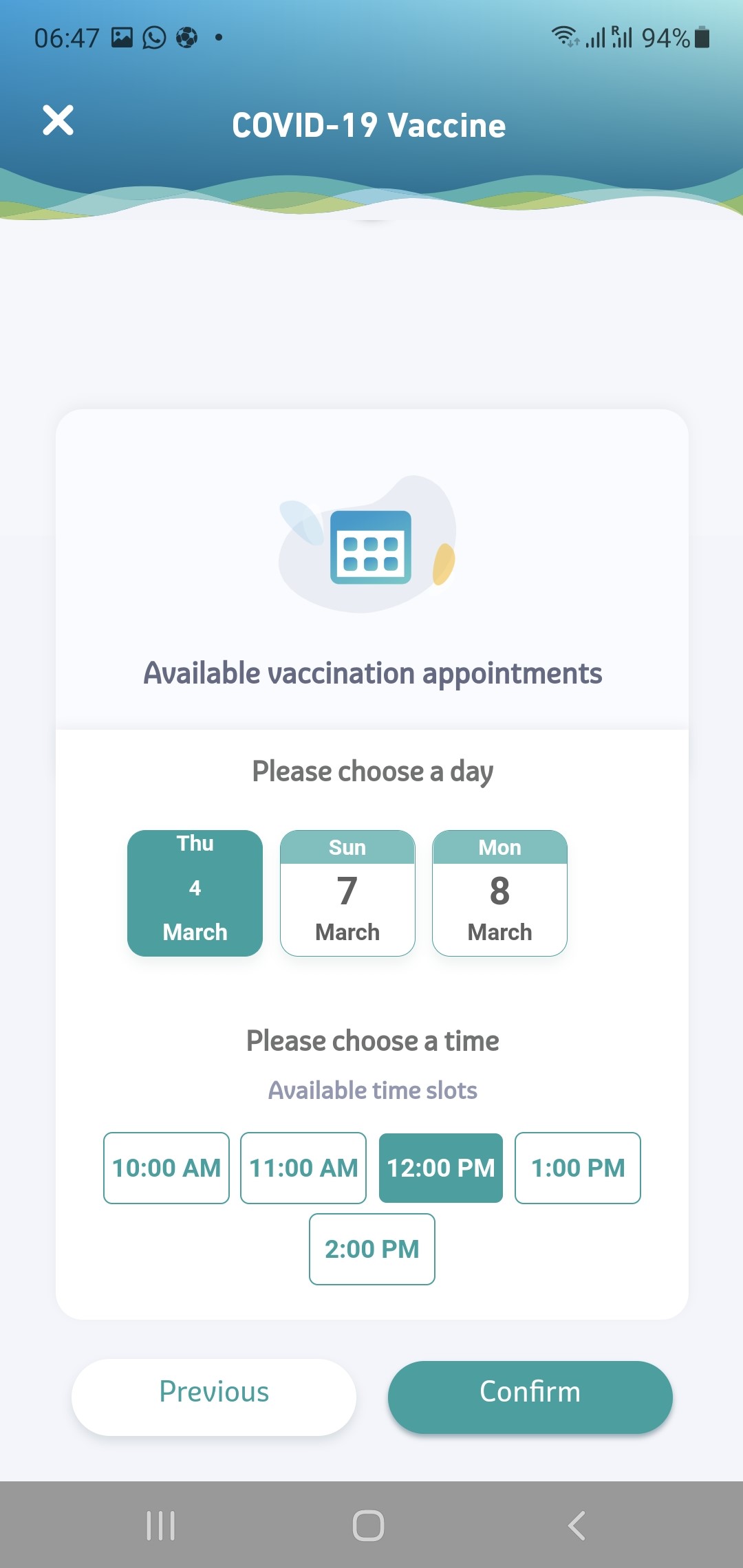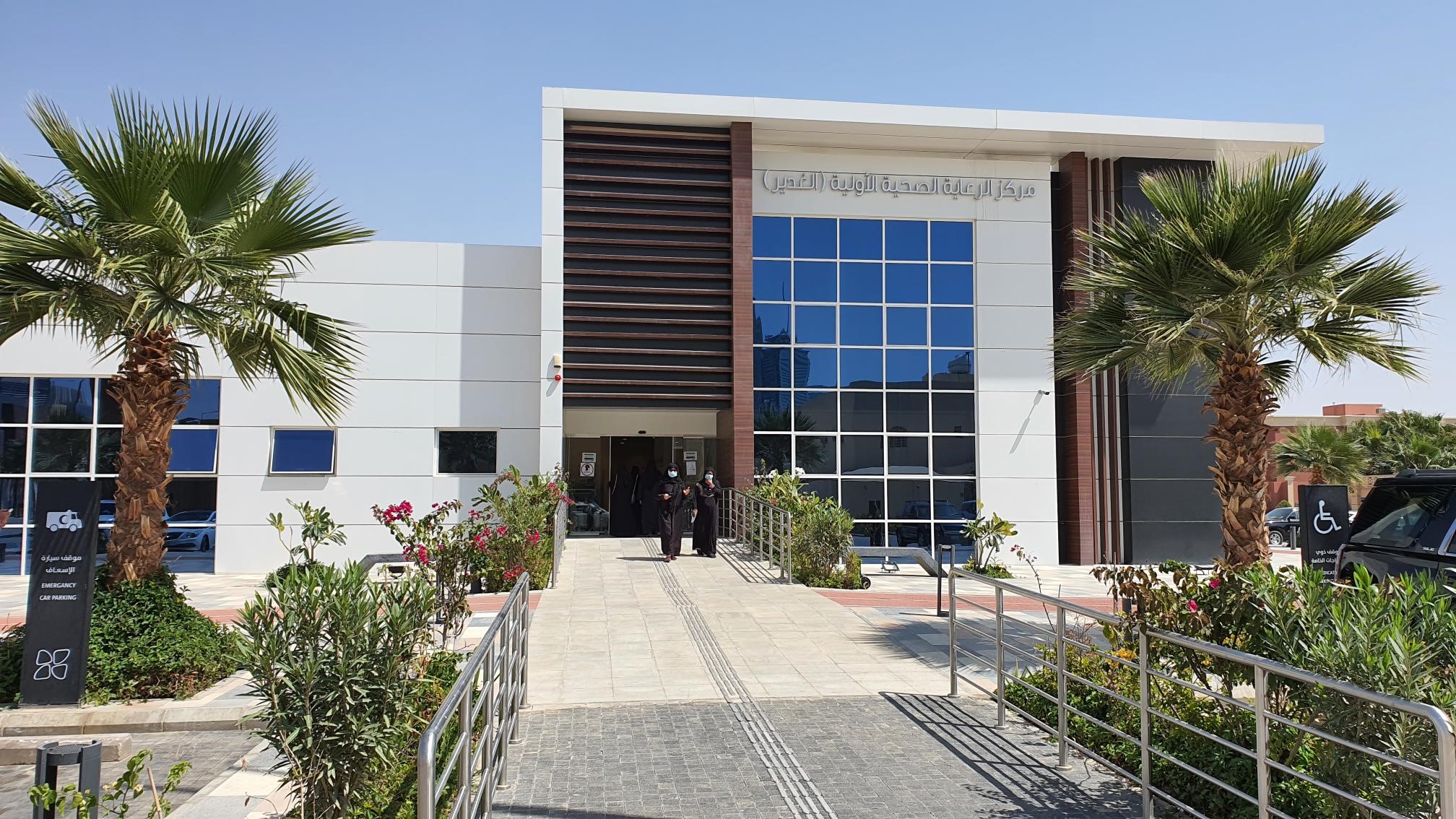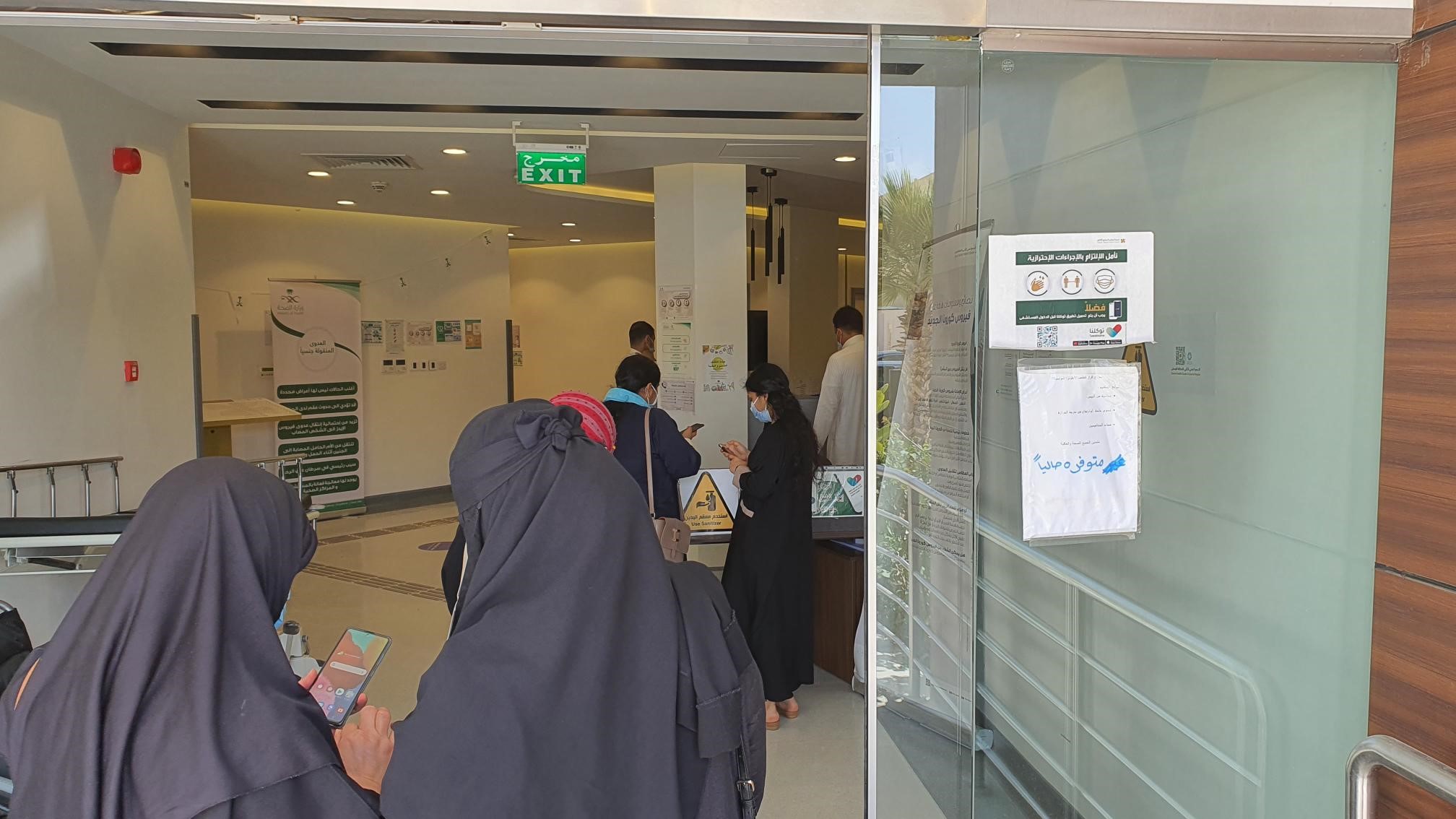Vaccination and corruption
When I returned to KSA In early January the UK was busy vaccinating the highest risk groups against the coronavirus. In Saudi, it appeared that of you registered on the “Sehaty” app you would be offered your vaccination pretty promptly. Then for a few weeks it seemed to go quiet, and nobody I knew was called for vaccination in Riyadh. I can only assume that there was a supply hiatus. But at 06.00 on 4th March I received a text message to ask me to book my vaccination. I immediately followed the instructions on the app, and selected a health centre not far from my workplace, and was offered slots starting from 10.00 the same day.

Screenshot of my phone during the booking process
So I booked at 12.00 and popped out at lunchtime, and was back in the office by 1.30pm with the first jab completed. My follow-up vaccination was automatically set for 11 weeks hence at the same location. One thing I must praise the Saudi government for is their efficiency of recognizing the threats posed by the virus and their equality in treating Saudis and ex-pats together in the vaccination programme. It would be easy to prioritise the native population at the expense of the ex-pats, but they realise that the ex-pats are an integral part of society and are just as likely to harbour and transmit the virus. So, on this occasion, we are being considered equally.

Local area polyclinic
In our office, the Saudis seem to prefer getting the Pfizer vaccine, and know know this is available at the Expo Centre in Riyadh. All other outlets are administering the Oxford-Astra-Zeneca vaccine, and that is what I got. Their preference seems to be because you get the second dose after 3 weeks whereas the OAZ one has an 11-week delay. This I didn’t know before I went for my jab, but to be honest it doesn’t bother me at all. Meanwhile at home in Biggar, Elaine has had her first jab, the OAZ, and my blue envelope letter inviting me to attend the mass vaccination centre at Ravenscraig has popped into our letterbox. Elaine is trying to get my NHS medical records to show that I am getting the vaccines overseas, it seems to be an admin challenge to do so.

Socially distant queuing. Interesting to observe Saudi ladies wearing face masks under their niqabs.
From mid April, a further step will be introduced – certain sectors of public-facing industries must have mandatory vaccination, and until that is achieved, non-compliant workers have to take a PCR test every 7 days. This applies to the public transport sector, and so everyone from taxi drivers to airline cabin crew are affected. This is a bold move, but hopefully there will be ways of managing situations where for medical reasons people cannot take the vaccine.
As I have said before, once the government decides to do something, they tend to put a lot of effort into it and it gets done.
One thing I have noticed more of recently is financial policies and procedures at work, and having to follow processes a lot more rigidly than was hitherto the case. Our expenses and work outputs now get audited by other government departments, and I have no problem with that. There is a government agency “Nazaha” established to identify and eliminate public sector corruption, and this has been very active. A recent newspaper article, reproduced below sheds some light on this.
From the Saudi Gazette:
“RIYADH — An official source in the Oversight and Anti-Corruption Authority (Nazaha) stated that the Authority initiated a number of criminal cases recently, and legal procedures against the accused are under way. Most prominent of which were as follow:
The first case: The arrest of two employees in a municipality of one of the regions and a bank employee, as the employees of the municipality obtained an amount of (SR5,174,000) five million one hundred seventy four thousand riyals, in addition to using bank accounts of a company which belongs to the bank employee in transferring those sums, in exchange for awarding a project of (SR60,000,000) Sixty million riyals to a certain company.
The second case: The arrest of (3) employees at a university (Director of Operation and Maintenance Department, Director of Mechanical Systems Department, and a Warehouse Keeper), a manager of a bank branch, and a businessman. The aforementioned university employees obtained an amount of (SR4,404,995) four million four hundred four thousand nine hundred and ninety five riyals, in return for several contract awarding with a total value of (SR13,844,579) thirteen million eight hundred and forty four thousand five hundred seventy nine riyals for the benefit of two enterprises that are owned by the businessman and the Director of Mechanical Systems Department (registered in the name of his wife); the bank manager enabled the Director of Operation and Maintenance Department to deposit an amount of (SR1,000,000) one million riyals in cash without verifying the sources of the funds, and then used those sums to purchase real estate in the names of their relatives in order to hide the source.
The third case: The arrest
of a former employee at a university (Director of the Safety Department and
Head of the Technical Committee for Projects Follow-up), a businessman and a
resident engineer, where the first person obtained an amount of (SR240,000) two
hundred and forty thousand riyals from the second person in exchange for
overlooking a number of violations with the complicity of the third person in
three projects that was worth an amount of (SR7,696,185) seven million six
hundred and ninety six thousand one hundred and eighty five riyals and were
executed by an enterprise owned by the second.
The fourth case: In cooperation with the General Authority of Civil Aviation (GACA), a former employee in the Contracts and Procurement Department at one of the international airports and a businessman were arrested, as the former enabled his relative (the second person) to obtain (218) direct purchase orders in an unlawful manner.
The fifth case: A former employee of the Saudi Authority for Industrial Cities and Technology Zones and a businessman were arrested, as the first person got an amount of (SR225,750) two hundred twenty five thousand seven hundred and fifty riyals from the second person in exchange for a testimonial statement from the first person's workplace which stated there are no efficient companies other than the company (which is owned by the second) in its field, and that in effect enabled the company to obtain projects in that Authority.
The sixth case: An employee of the General Authority of Customs and an employee, who works as a customs broker, were arrested, as the first obtained an amount of (SR574,300) five hundred seventy four thousand and three hundred riyals, in exchange for clearing containers that contain tobacco, using some of his relatives bank accounts.
The seventh case: In cooperation with the Ministry of Interior, (4) non-commissioned officers working at the General Directorate of Traffic in one of the regions were arrested for pulling over a resident and enabling their colleague (a retired non-commissioned officer) to search his vehicle and steal an amount of (200,000) two hundred thousand riyals from the vehicle.
The eighth case: in cooperation with the Ministry of Interior, a retired non-commissioned officer from a police department of one of the regions was arrested for taking an amount of (SR219,750) two hundred and nineteen thousand seven hundred and fifty riyals as well as gold ingots while he was working as a warehouse keeper and traded it in selling and buying cars and deposited the amount and profits in a bank account that belongs to a car dealership, which is owned by one of his relatives, then transferring those sums to his bank account in order to hide its source.
The ninth case: In cooperation with the Ministry of Interior, a citizen was arrested for offering an amount of (SR200,000) two hundred thousand riyals to the arrest squad of the General Directorate of Narcotics Control during his arrest for possession of narcotics.
The tenth case: An officer with the rank of colonel and a non-commissioned officer from the General Directorate of Passports, in one of the regions, were arrested, as the second registered a fake entry of a relative of the first into the Kingdom, upon his request.
The Authority affirms that it will continue to pursue anyone who exploits the public office to achieve personal gain or harm public interest in any way possible, and that the accountability extends far beyond the retirement of any individual, as the crimes of financial and administrative corruption have no statute of limitations, and that it will apply what the rule of law against violators with zero tolerance.”
And, taking things a step further, Nazaha has been sending out text messages to the population at large, urging us to report any corruption. Here’s one that I received last week:
“With your cooperation, the Oversight and Anti-Corruption Authority (Nazaha) has initiated 263 oversight visits during the month of Rajab, exercising its mandates and duties, along with investigating 757 accused individuals in criminal and administrative cases, and arresting 241 citizens and residents. Among them, employees working in Saudi ministries (Interior, Health, Education, Municipal Rural Affairs & Housing, Human Resources & Social Development), Saudi Customs and Saudi Post for their involvement in various crimes (i.e. bribery, abuse of office, forgery). Criminal proceedings are currently being taken against the detainees for prosecution in a court of law.
To protect and preserve public funds, you can report suspicions of financial or administrative corruption to Nazaha, through the following reporting channels:” (Toll Free Number, email and Fax details were provided).
So, is this the end of the “Wasta” culture? I doubt it as it is too ingrained in the Saudi way of life. For a particularly informative expatriate opinion on what Wasta is (personal or family influence, a.k.a. “Vitamin W”), do read Blue Abaya’s comments on www.blueabaya.com/2015/04/wasta-in-saudi.html
